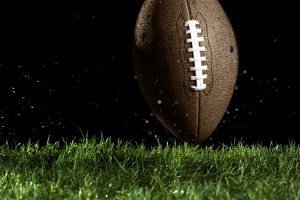July 20, 2018

Texas A&M University (“A&M”) recently challenged the trademark application of Washington Soap Company (“Applicant”), which was seeking registration of 12TH MAN HANDS for “handmade loofah soap bar or puck.” A&M contested the application on likelihood of confusion grounds under Section 2(d) of the Trademark Act and dilution by blurring under Section 43(c) of the Trademark Act. A&M owns four registered 12th MAN-related marks and successfully challenged registration of the Applicant’s mark before the Trademark Trial and Appeal Board (“TTAB”) under principles of trademark law.
How was A&M able to successfully challenge registration?
History of the 12th Man
If you are a football fan, you have most likely heard some teams refer to their crowds as the “12th Man.” The notion is that the support of the crowd gives the home team such an advantage against the opposition that it feels like they have an extra player on the field. Professional football teams, such as the Seattle Seahawks and Buffalo Bills, have used this term to describe their rabid fans. What you probably did not know, however, is that 12th MAN is protected under trademark law and that these teams had to obtain a license from A&M to use the brand.
A&M has been using the 12th MAN brand dating back to 1930. First use of 12th MAN dates back to a game in 1922, where the team was concerned that it would not be able to field enough players during the game due to injuries. In this game, they asked E. King Gill to come out of the stands and dress as a 12th man in case they needed a substitute. Gill never played in that game, but his eagerness to support his team has been immortalized in A&M lore. Since then, A&M has worked hard to protect and promote the 12th MAN brand, which they believe proudly represents A&M football. Currently, A&M has roughly six hundred licensees throughout the United States and receives an estimated $40,000,000 from retail sales of goods bearing the 12th MAN mark. Its duty to protect its brand (in order to maintain its trademark rights) brought A&M into the instant trademark law dispute with the Applicant over the use of 12th MAN HANDS, accompanied with a logo of a hand gripping a football.
Principles of Trademark Law
The Trademark Act is intended to protect consumers from brand confusion and deception. Upon initial review of the 12th MAN HANDS trademark application, the United States Patent and Trademark Office (“USPTO”) did not find any reason to deny the application and 12th MAN HANDS was published for opposition in the USPTO’s Official Gazette. During publication, A&M became aware of the Applicant’s mark and opposed the registration at the TTAB because, it argued, consumers would likely be confused or deceived by the source of the 12th MAN HANDS mark. In order to succeed with its trademark law claim, A&M would have to prove, by a preponderance of the evidence, that it had priority and that consumers would be confused by the source of 12th MAN HANDS goods.
To determine likelihood of confusion, the TTAB analyzes the evidence at issue in relation to the thirteen factors set forth in In re E.I. du Pont de Nemours & Co., 476 F.2d 1357, 177 USPQ 563, 567 (CCPA 1973). The du Pont factors are evaluated on a balancing scale. However, not all of the factors may be given equal weight and one factor alone could push the scale in favor of a single party. In the case at hand, the TTAB found that all of the du Pont factors either supported a likelihood of confusion in favor of A&M or were determined to be neutral. Two key factors, the similarities between the subject marks and the similarities of the respective goods and services, weighed heavily in favor of A&M. The TTAB found that 12th MAN was the dominant feature of both marks and because A&M has licensed the mark on soap products, there were similarities in the respective goods sold. Once the TTAB determined that there was a likelihood of confusion, it did not need to address the dilution claim.
If you are interested in learning more about this topic, or if you are involved in a trademark law dispute, please e-mail us at info@kleinmoynihan.com, or call us at (212) 246-0900.
The material contained herein is provided for information purposes only and is not legal advice, nor is it a substitute for obtaining legal advice from an attorney. Each situation is unique, and you should not act or rely on any information contained herein without seeking the advice of an experienced attorney.
Attorney Advertising



